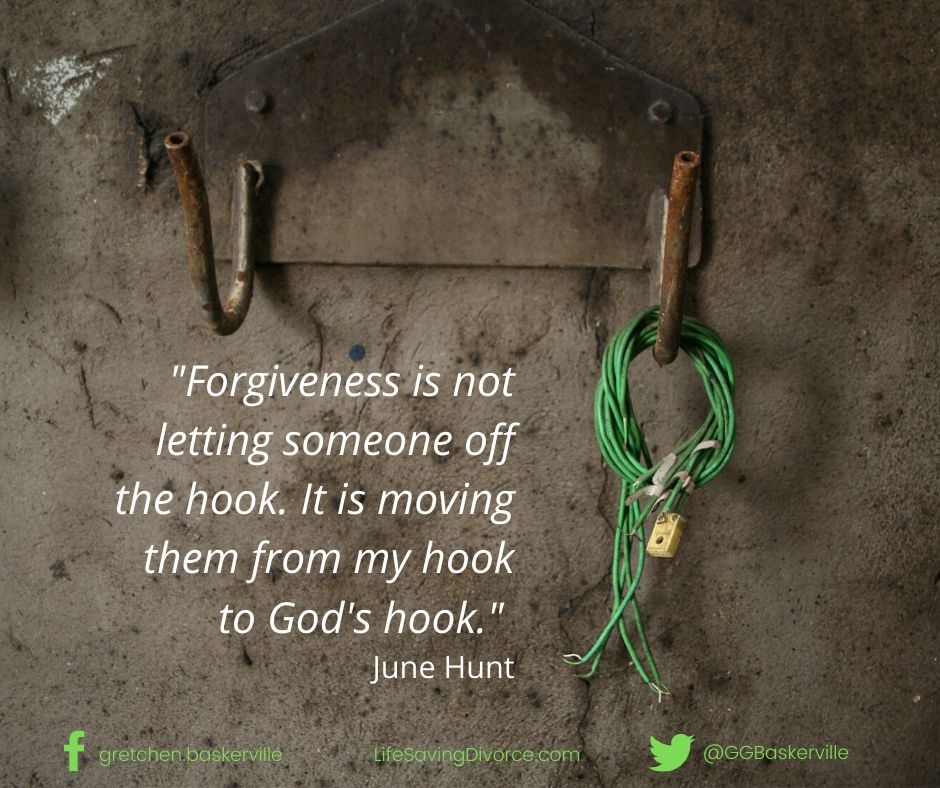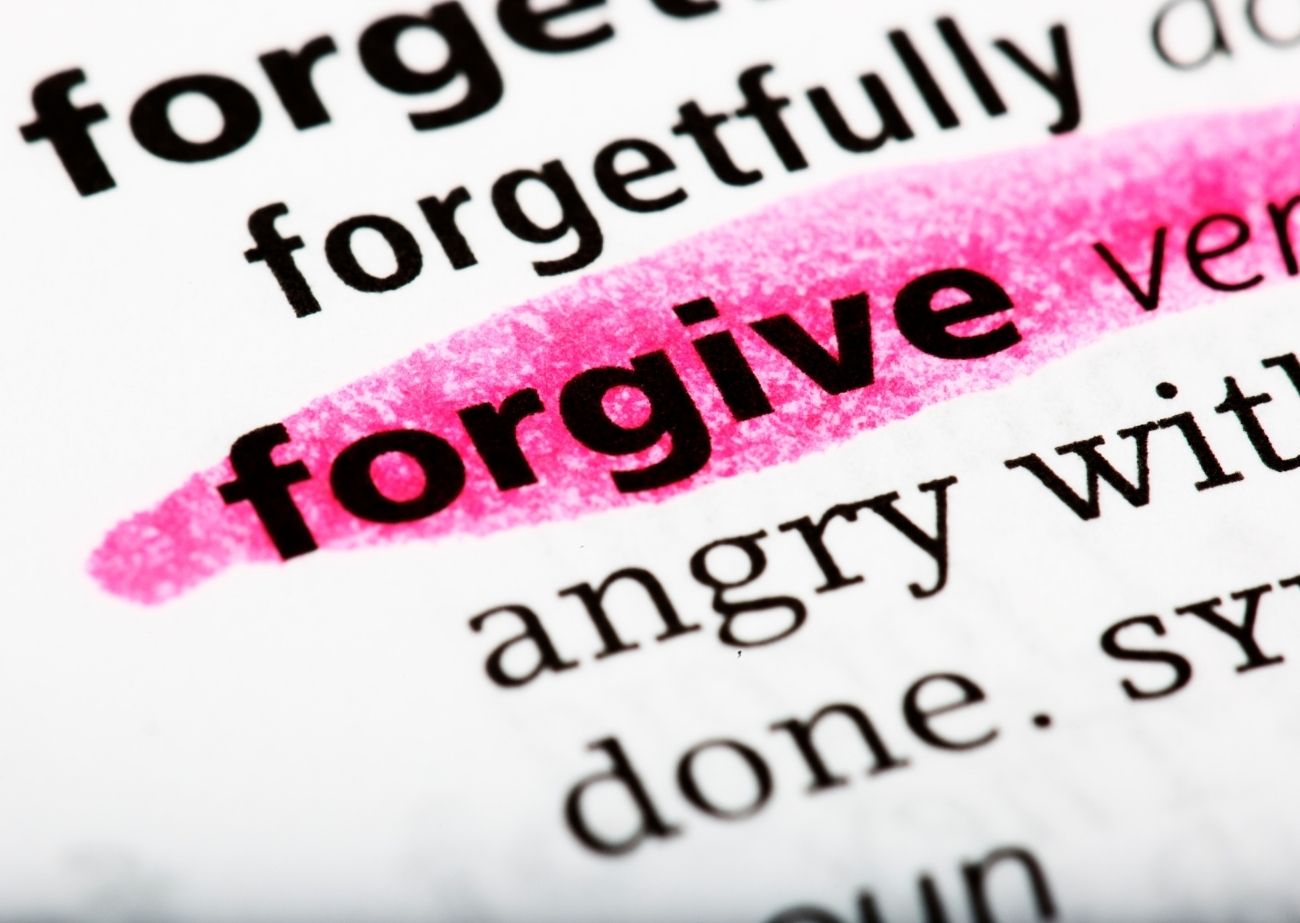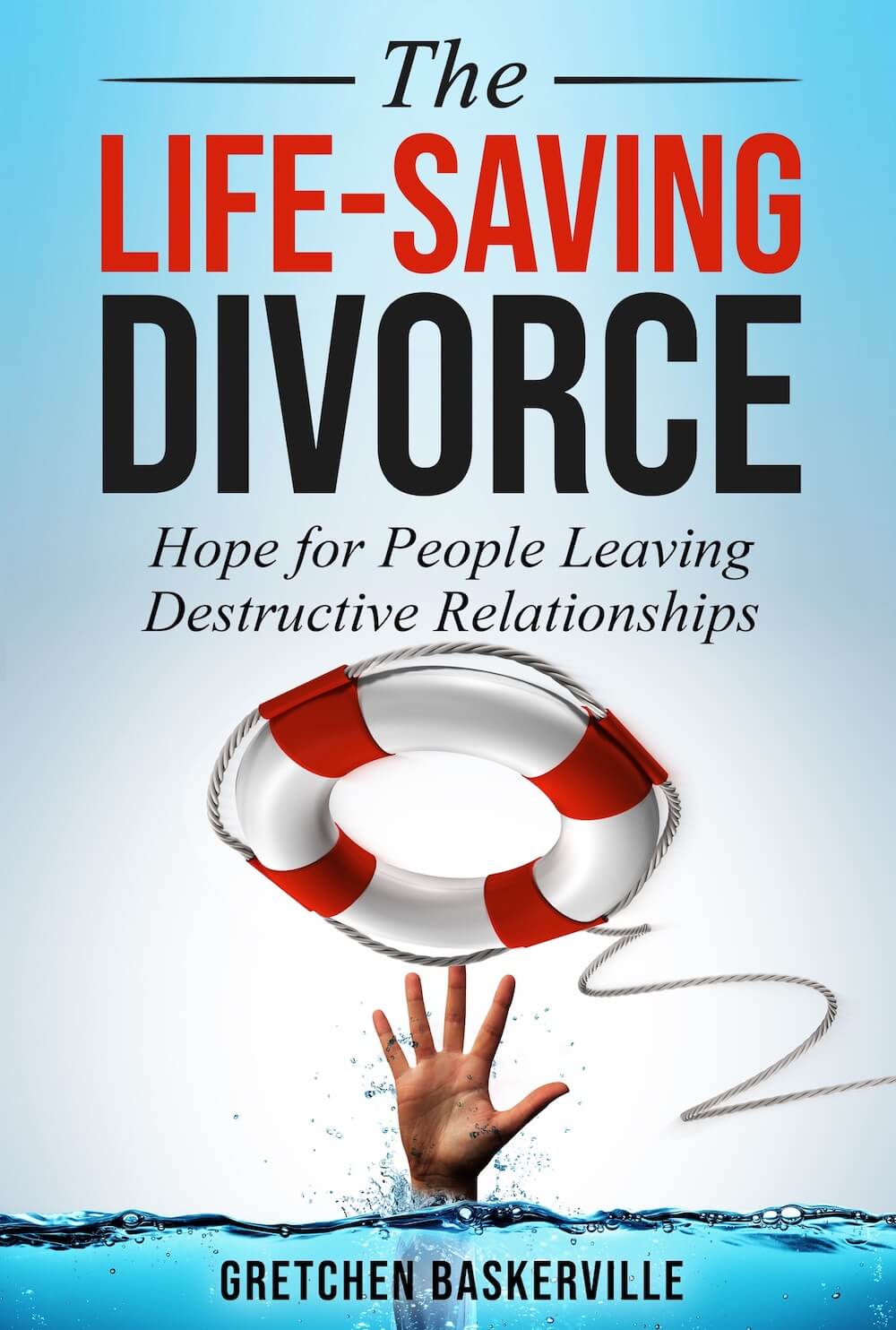FORGIVENESS IS NOT SWEEPING EVERYTHING UNDER THE CARPET
| Forgiveness is not… | Forgiveness is… |
| Forgiveness is not letting the offender off scot-free. | Forgiveness is holding the offender responsible, including requiring reparations and accepting the legal consequences of their actions. Forgiveness wants repentance and compensation, if possible, not revenge. |
| Forgiveness is not saying the abuse, cheating, sexual immorality, and addictions are okay. | Forgiveness is saying that the abuse, cheating, and betrayals are wrong and destructive, and there are consequences for the offender, such as the loss of trust and often the loss of the marriage. |
| Forgiveness is not acting as if it never happened. | Forgiveness is saying it happened, and it shouldn’t happen again. |
| Forgiveness is not refusing to look at the offense. It is not sweeping the injury under the carpet or refusing to see the damage done.[1] | Forgiveness is looking at the full damage and expressing the horror and rage. It is to name the injuries and express your anger/sadness/grief aloud. It is speaking about the unspeakable. |
| Forgiveness is not saying “forgive and forget.” | Forgiveness does not require forgetting. Forgiveness doesn’t erase the offender’s guilt or wipe out the consequences for the offender. Even if you have forgiven a person, you can still divorce them. Forgiveness doesn’t give them a clean slate or a fresh start to hurt you all over again. |
| Forgiveness is not the same as healing the injuries caused by that offense. | Forgiveness happens in the spiritual world. Healing happens in the emotional and physical world. You can forgive, but still need time to heal. Just because you’ve forgiven doesn’t mean the damage caused by the other person miraculously disappears. |
| Forgiveness is not a one-time event. | Forgiveness is a long process. As you tell your story and think about the past, you will uncover some pain or hurt you hadn’t seen before. You may have to forgive various parts of the abuse/betrayal. |
| Forgiveness is not becoming friends again, trusting again, or reconciling again. It does not require you to trust this person again, or to befriend them, or even speak to them ever again. It doesn’t mean answering their letters, emails, voicemails, or messages. | Forgiveness is permission to protect and distance yourself. |
| Forgiveness is not saying, “We’ll go back to the same warm feelings we had before the betrayal.” | Forgiveness is facing the truth about the pain and injury. It means staying away from a dangerous person if possible. In some cases, it might include cooperating with law enforcement to keep this person from injuring others. |
[1] Top author on trauma and recovery, Dr. Judith Herman of Harvard, says, “The ordinary response to atrocities is to banish them from consciousness. Certain violations of the social compact are too terrible to utter aloud: this is the meaning of the word ‘unspeakable.’” She goes on to write, “Remembering and telling the truth about terrible events are prerequisites both for the restoration of the social order and for the healing of individual victims.” Herman, Trauma, 1.
If you wonder where these teachings come from, they are right in the Bible. The Bible says we are to get away from abusers, not to associate with them, not even to eat with them. So it must be possible to love, forgive, and walk away.
Radio counselor June Hunt says,
“Forgiveness isn’t letting someone off the hook for the bad they’ve done.
It is moving them from your hook onto God’s hook.”[4]

[1] Definition for slander based on “Slander,” www.USLegal.com, accessed 11/3/19, https://definitions.uslegal.com/s/slander/.
[2] “Libel vs. Slander: Different Types of Defamation,” Nolo Press, retrieved 11/3/19, https://www.nolo.com/legal-encyclopedia/libel-vs-slander-different-types-defamation.html.
[3] Top author on trauma and recovery, Dr. Judith Herman of Harvard, says, “The ordinary response to atrocities is to banish them from consciousness. Certain violations of the social compact are too terrible to utter aloud: this is the meaning of the word ‘unspeakable.’” She goes on to write, “Remembering and telling the truth about terrible events are prerequisites both for the restoration of the social order and for the healing of individual victims.” Herman, Trauma, 1.
[4] June Hunt, Self-Worth: Discover Your God-Given Worth (Peabody, MA: Rose Publishing, 2013), 65.
Are you going through a life-saving divorce? I’d like to invite you to my private Facebook group, “Life-Saving Divorce for Separated or Divorced Christians.” Just click the link and ANSWER the 3 QUESTIONS. This is a group for women and men of faith who have walked this path, or are considering it. Also, sign up for my email list below.
50 MOST POPULAR BLOG POSTS
Start Here
- What is a Life-Saving Divorce? How Do We Know Half of Divorces are “Life-Saving”? (or watch the video)
- Life-Saving Divorce: Introduction What Is this Book About? (audio and transcript)
- About Me: Why Is a Nice Christian Girl Like Me Promoting Divorce?
- How Can I Get the Book, The Life-Saving Divorce? (Amazon affiliate link.) — FREE study guides for each chapter. — FREE videos for each chapter.
Physical and Emotional Abuse & Infidelity
- 130 Examples of Abuse: Emotional, Physical, Financial, Spiritual and Gaslighting
- Abuse is Biblical Grounds for Divorce
- “But He Never Hit Me”: Divorce for Neglect, Emotional, and Financial Abuseå
- Pastors Who Accept Physical and Emotional Abuse as Grounds for Divorce
- Severe Emotional Neglect: Toni’s Story of Finding Freedom (video)
- 40 Years of Murderous Rages and How I Got Free! Karen’s story (video)
- How Churches Should Handle Abuse Victims (video with Pastor Neil Schori)
- Help! I’m Married to a Cheater: Should I Stay or Go?
- Married to a Pedophile: How I Got Out – Pam’s Story (video)
- Help! I Am Alone with the Abuser
God Allows Divorce to Protect Victims
- Jesus’ Greatest Divorce Sermon – Luke 13 (or watch the Video)
- Pastors Who Accept Physical and Emotional Abuse as Grounds for Divorce
- Myth: The Person Who Files for Divorce Caused the Divorce
- Haven’t Our English Bibles Always Said, “God hates divorce”? No.
- Jesus Said, “Love My Enemy”—Can I Still Divorce Them?
- But I Thought it Was God’s Will for Me to Marry this Person!
- Is Pointing Out Marriage-Endangering Sin Being Judgmental? (video)
- One Woman’s Story: Adultery, Prayer and the Bible
- Is Marriage an Unconditional Covenant or a Conditional One? (Video)
- Does Divorce Shatter the Image of Christ and the Church as John Piper Suggests?
- Divorce and the Good Samaritan Story
- Myth: Divorce is the Unpardonable Sin and “God Hates Divorce”
- Myth: Your Divorce Will Shatter the Image of Christ and the Church
- Myth: You Must Forgive and Forget Over and Over, Forever
Does God Hate Divorce? No, Most English Bible Translations Don’t Say That
- Malachi 2:16 Haven’t Our English Bibles Always Said, “God hates divorce”? No.
- Myth: Divorce is the Unpardonable Sin and “God Hates Divorce”
- List of Every Known Puritan Divorce in Massachusetts between 1639 and 1692.
How to Find a Good Supportive Church
- Pastors Who Accept Physical and Emotional Abuse as Grounds for Divorce
- 7 Ways to Know if a Church is Safe for Abused Wives (or Abused Husbands)
- Do My Pastors Have a Say about Me Getting a Divorce?
- Good vs. Bad Pastoral Counselors on the Topic of Marital Abuse: 40 People Tell their Stories
What If My Pastor Says It Would Be Wrong to Get Divorced for Abuse?
- 5 Bible Verses that Say You Should Separate from an Abuser
- 1 Million God-honoring Divorcees Cannot Find a Good Church
- Church Denominations and Divorce Policies Comparison Chart
- Excommunication for Getting Divorced? What to Do!
- Evangelicals Shooting their Own Wounded Divorcees (video) or blog/transcript
- How to Handle Criticism When You Divorce (video-3 parts) Natalie Hoffman, Gina Kaye
- Myth: You Don’t Take God-Ordained Marriage Seriously
- Sermon Ideas for Domestic Violence Awareness Month – October
- Churches That Block Abused Wives (and Husbands) From Divorcing
- Southern Baptists make Evangelicalism Unsafe for Abused Wives & Husbands
- How Churches Should Handle Abuse Victims (video with Pastor Neil Schori)
Divorce Saves Lives: The Surprising (Wonderful!) Truth About Divorce Nobody Told You
- Your Kids Will Likely Be Fine After Divorce (Nearly 8 in 10 Are!)
- 10 Facts Evangelical Pastors MUST Know about Kids and Divorce [VIDEO]
- There Is No Divorce Crisis. We have a Sin Crisis.
- Myth: 95% of Divorces are for Falling Out of Love
Will I Ever Find Love Again? Dating After Divorce: Good News
- Will I Ever Find Love Again?
- Dating after Divorce: An interview with Gina Kaye
- I Fear I’ll Never Find a Healthy Relationship
- Remarriage after Divorce: How Can I Claim to be the Innocent Spouse? I Had My Faults Too!
Finding Happiness and Health After Divorce
- Will the Kids and I Ever Be Happy Again?
- Happiness Either Way: Remarriage or Staying Single
- Divorce May Improve Your Health: Depression, Suicidal Thoughts and Medical Issues
- How My Health Improved Dramatically After Divorce: Karen’s Story (video)
- “I’m Off of All My Depression Medications Now That I’ve Divorced” Schari’s story (video)
- PTSD, EMDR and My Major Health Improvements after Divorce Toni’s story (video)
Thriving After Divorce: These Christians Tell their Stories
- Christians Finding Peace after Divorce: Shirley Fessel, Author (Audio) or (Video)
- 10 Turning Points: Stories of How Others Decided to Stay or to Go
- Married to a Pedophile: How My Kids and I Got Free! (video)
- Finding Joy after a 40-Year Abusive Marriage (video)
- Can I Divorce My Mentally Ill, Destructive Spouse? Yes! Amanda’s Story (video)
- From Bondage to Glorifying God! 5 Survivor Stories (after 20-, 30-, 40-year long abusive marriages)
Self-Doubt, Second-Guessing Ourselves, and Gaslighting
- Am I the One Destroying the Relationship?
- How Can I Call Myself the Innocent Spouse? I Wasn’t Perfect Either (video)
- Is Pointing Out Marriage-Endangering Sin Being Judgmental? (video)
- Myth: He Wouldn’t Cheat or Watch Porn if You Gave Him More Sex
- Myth: You’re Lying: We’d All Know If Your Spouse Was That Bad
- Myth: It Takes “Two to Tango” and “All Marriage Problems are 50/50”
- How to Handle Criticism When You Divorce (video-3 parts) Natalie Hoffman, Gina Kaye
Children and Divorce: Researchers Give Hope
- Is it Best to “Stay for the Kids”? Sometimes, yes. But Not if It’s a Toxic Marriage
- Researchers Know Your Kids Will Likely Be Fine After Life-Saving Divorce
- 5 Studies That Say Your Kids are Likely to Be Okay After Divorce (video)
- Marriage Does Not Guarantee Good Kids: 1 in 10 Kids from Married Two-Parent Homes are Troubled.
- Myth 21: Divorce will Destroy Your Children, So Stay for the Sake of Your Kids
High Conflict Divorce and Parenting
- Research shows: Your Kids Will Likely Be Fine After Divorce: In Fact It’s Best to Divorce to Get Away From Abuse
- 12 Ways to Document and Protect Yourself in a High-Conflict Divorce
- 12 Tips for Talking with Angry, Alienated Kids
- Myth: Divorce will Destroy Your Children, So Stay for the Sake of Your Kids
Recommended Reading List and Free Resources for Christians and Other People of Faith
Common Myths
- Myth: Your Marriage Would Be Great if You Just Submitted More
- Myth: Divorce will Destroy Your Children, So Stay for the Sake of Your Kids
- Myth: Divorce is the Unpardonable Sin and “God Hates Divorce”
- Myth: You Just Didn’t Try Hard Enough
- Myth: You Don’t Take God-Ordained Marriage Seriously
- Myth: Your Divorce Will Shatter the Image of Christ and the Church
- Myth: You Must Forgive and Forget Over and Over, Forever
- Myth: 95% of Divorces are for Falling Out of Love
- 27 Myths about Divorce That Probably Don’t Apply to Committed Christians
FREE
- Download “7 Effective Ways to End the Stigma of Divorce in the Church” (Sign up)
- Download “7 Effective Ways to Deal with Criticism when You Divorce” (Sign up)
- Download “3 Studies that Show Kids Are Most Likely to Turn Out Fine After Divorce” (Sign up at bottom of page)
FOLLOW
- Home Follow me on Facebook • Follow me on Twitter • Buy the book.
- 10 Key Highlights from the The Life-Saving Divorcebook: 10-minute video overview OR 10 Key highlights blog post
- Request to Join the Life-Saving Divorce Private Facebook Group (Don’t forget to answer the 3 questions)
- Subscribe (FREE) to my You Tube Channel
- About Me Contact
- Gretchen’s Life-Saving Divorce Interviews in the Media
GET THE BOOK! The Life-Saving Divorce is about divorces for very serious reasons: a pattern of sexual immorality, physical abuse, chronic emotional abuse, life-altering addictions, abandonment, or severe neglect. This book will give you hope for your future, and optimism about your children. As an Amazon Associate I earn from qualifying purchases.
SIGN UP below for the email list for find out about helpful new blog posts, videos, and FREE Kindle book giveaways.



 :
:
 Buy PDF
Buy PDF